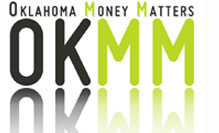Acing a Job Interview

Page 3 of 15
Your resume impressed, so the employer is calling you in for an interview. Now what?
Do Your Research
Learn all you can about the company. Using the Internet and/or a contact who works with the company, research their products, office environment and professional philosophy. Show the interviewer you’re serious about the job by demonstrating a basic understanding of the company’s operations and asking open questions about strategic objectives.
Practice, Practice, Practice
While every job interview is different, there are some pretty standard questions that may be asked. Practice answering this list of sample questions (PDF) so you’re not caught off-guard.
When answering, always bring the discussion back to what you can offer the company. Holding a mock interview with a friend or family member may help you feel more comfortable when the real interview happens.
Know Yourself
If you’re asked to describe yourself or list your strengths and weaknesses, experts say it’s better to tell a story to explain situations or showcase your strengths rather than rattling off a laundry list of skills. Ask yourself, what are the top five things I want this person to know about me? Keep answers short and to the point, be self-assured and humble, yet assertive; arrogance won’t impress anyone.
Be Honest
If a good story is great then a great story must be better, right? Not necessarily! It’s fine to share your successes as long as you can back up what you claim. If you say that you created a program that saved thousands of dollars for your previous employer, you’d better have proof of your successes. Remember, employers will research your background, experience, and accomplishments.
Dress the Part
It’s important to have a professional appearance. Some employers may overlook outrageous hair color or visible tattoos, but it’s best to dress conservatively for an interview. A few days before your interview, choose your outfit and make sure it’s clean, ironed and fits appropriately. Neutrals are best for interviewing, so avoid bold colors and patterns.
Ask Questions
Generally you’ll be invited to ask questions about the position or the company. Employers appreciate educated questions, so be prepared. Have a short list of things you’d really like to know. One example is “What projects would I be working on in the first three months?” This shows that the applicant is serious and future-minded.
If you’re curious about the salary range, you should either ask when you’re first contacted for an interview or wait until they’ve expressed interest in offering you the job. It’s considered poor taste to bring up money in the actual interview, where the focus is expected to be on what you can do for the employer if you’re selected for the job.
Don't Complain
If asked why you’re leaving your current or previous job, keep the answer short and don’t vent about your boss or co-workers. If you can’t avoid mentioning conflict, focus on how you dealt with it and what you learned from the situation.
Be Confident
Use a firm grip when shaking hands. During the interview maintain good eye contact and avoid fidgeting or saying 'um' or 'and' a lot. Don’t be afraid to pause to collect your thoughts. Sit up straight and be aware of your body language. A lot can be communicated without actually speaking a word.
Say Thanks
After your interview, send a nice thank you note. Drop it in the mail the same day. Check out this thank you note example (PDF) for inspiration.
Be Yourself
Take a deep breath, be sincere and be yourself. If you’re the right candidate for the job, chances are you’ll get an offer.


